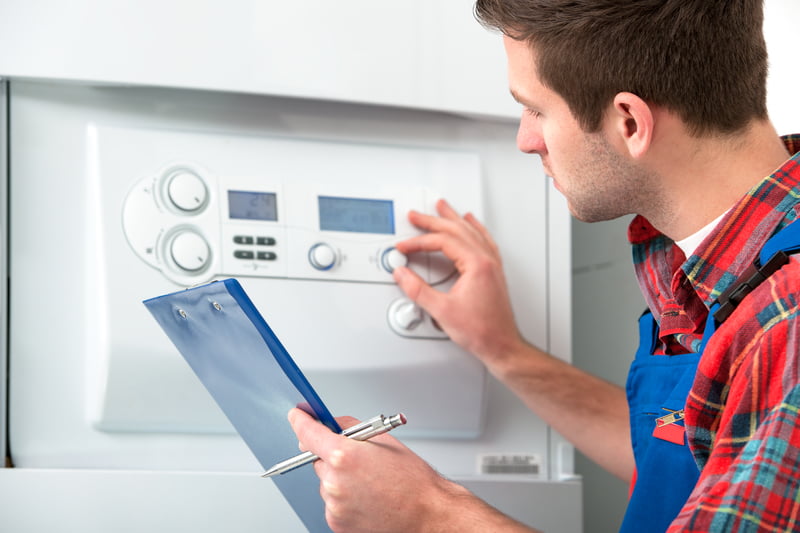The UK is now into its ninth week of lockdown measures, with the majority of the nation still encouraged to stay at home. At a time where home energy use is apparently up by 30%, it’s important to ensure that your home appliances are working at their best.
Our boiler stopped working during the first week of lockdown, so out came the YouTube videos and fortunately it has worked fine since!
If you have got issues with your hot water and heating systems, here are a few things to try.

Re-connect your boiler and your thermostat
If your heating isn’t working properly, it may be due to your boiler being disconnected from your thermostat. You’ll know this by the ‘CH’ and antenna symbols flashing on the boiler receiving panel.
Whilst it may not be classed as an emergency, having a disconnected thermostat to your boiler can certainly be frustrating. Thankfully, this is a simple problem to solve by following the steps here.
Take the pressure off

With extra time at home, many of the nation have taken to DIY, with the average Brit doing four DIY jobs so far during lockdown. Of this, 31% have taken to painting the walls, which may include taking your radiators off the wall. Removing a radiator will result in you losing water and pressure from your heating system which will need to be replenished – we had this issue when decorating a room recently, it’s a common problem.
Your boiler pressure is extremely important because it helps to keep the water in your home warm. If your pressure is too low, then your central heating may not work. If it’s too high, then your boiler will be under too much pressure which could also lead to a breakdown.
Your boiler pressure is usually indicated on a dial by the boiler. The optimum boiler pressure is between 1 and 1.5 when the system is cool. If your boiler has lost pressure, this is something you can quickly resolve yourself.
If you can find your boiler user manual, this is a great place to start. Alternatively, you can watch Worcester Bosch’s video on re-pressurising your heating system here.
Bleed your radiators
Once your radiators are back on the wall, you should take time to ensure these are working as efficiently as possible too. Air can build up in your heating system over time, causing gurgling sounds, or the tops of your radiators feeling colder than you would expect. This is completely normal and can be fixed at home without the need to call an engineer.
If this happens, you will need to bleed your radiators to make sure your heating is working at full efficiency and keeping your house warm on the chilly spring evenings. After bleeding your radiators, check your boiler pressure as you may need to top that up if it has dropped below 1 bar.
For a video on how to bleed your radiators, click here.
If all else fails…

If these tips have reached you too late and you are in need of a new boiler, take a look at Worcester Bosch’s advice on choosing the right replacement for your home here.
A boiler beyond repair is deemed as an emergency so you should be able to arrange for a heating engineer or installer to visit your home if you and they are comfortable to do so, and you are able to effectively social distance.


2 comments
Appliance repair serves St. Louis and surrounding areas for appliance repair services for washers, dryers, dishwashers, ovens, refrigerators & more! Check out our website for more information